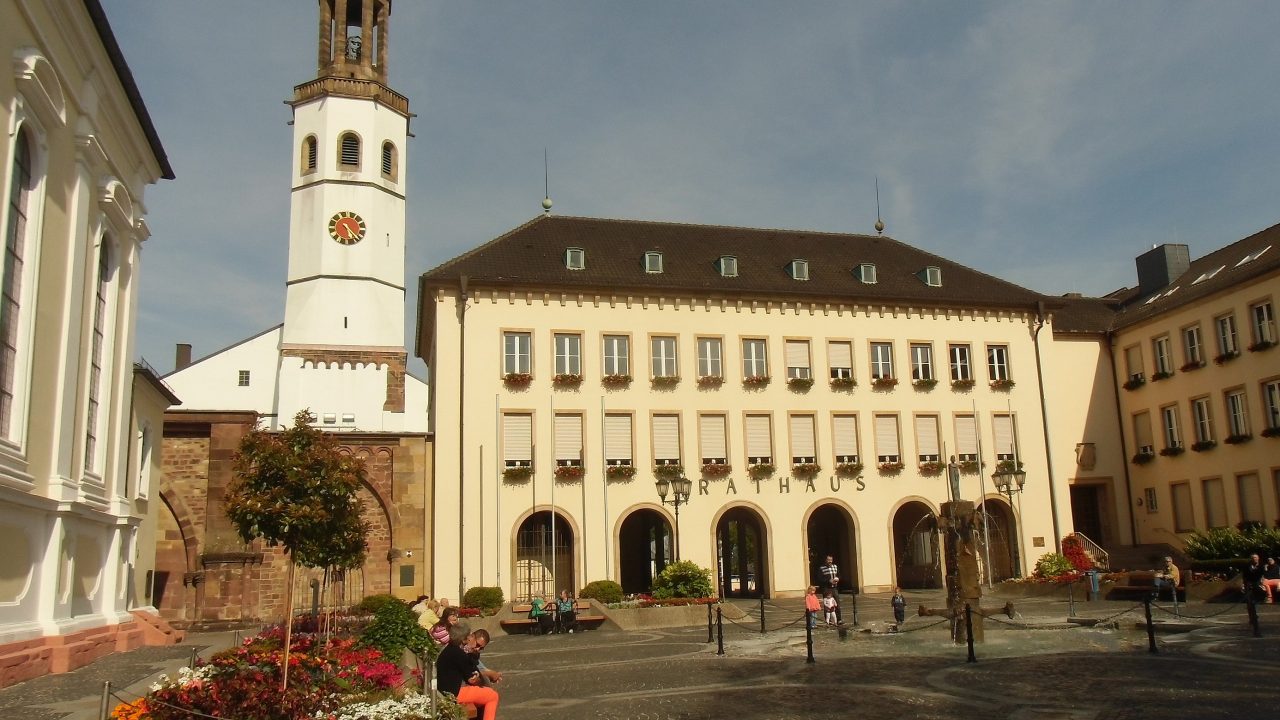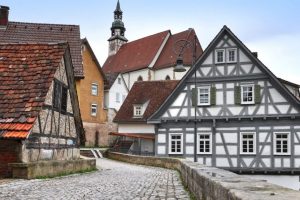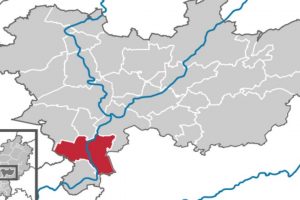
© Wiki Commons
Ansar Bilal Anwar, Frankfurt, Germany & Tariq Mahmood, Toronto, Canada
We journey once more to a quaint town in the Rhineland-Palatinate region of Germany.
In the recent editions, The Review of Religions has explored small towns in the heart of Germany which have seen dozens of new mosques built over the last decade.
These towns possess captivating stories of their past: some were strategic points in wars long forgotten by the layman, others have buildings which have stood for a thousand years.
Frankenthal is no different: first mentioned as a small fishing village in 772 CE, it developed for hundreds of years until it became home to a powerful Augustinian monastery in 1119 CE. The land was then placed in control of the Holy Roman Empire 400 years later. Frankenthal suffered heavily during the Thirty Years’ War and was completely destroyed during bombing raids in World War II, but slowly rebuilt itself over the decades.
It now stands tall with 48,000 inhabitants to its name. Surrounded by fertile fields and laden orchards, the town of Frankenthal radiates that perfect balance of nature and modernity that most people crave.
The people within are just as lovely: Frankenthal is known for its tolerance and plurality. In order to bridge gaps and increase understanding, many functions are held each year, such as interfaith dialogues, where different Christian denominations and Islamic religious minorities such as the Ahmadiyya Community take part.
Now, with the construction of Frankenthal’s newest mosque, a new nexus for lively discussions and captivating conversations has emerged onto the town’s landscape.
The Ahmadiyya Muslim Community in Frankenthal
Ahmadi Muslims arrived in Frankenthal as early as 1984. This period of the Ahmadiyya Community coincided with heightened levels of persecution in Pakistan, where a fresh set of discriminatory laws were passed to bar Ahmadis from identifying as Muslims.
Thus, three singular Ahmadis would come together and pray in small rooms within Frankenthal to fulfil their religious obligation. As the community grew larger, one thing became clear: the Ahmadis of Frankenthal needed to step up and show what it means to be an Ahmadi. And so, they began organising interfaith events, gave lectures at various seminars, and held book stalls to spread the message of peace. Alongside this, they strived to help out their fellow humans by giving back to the community. They would clean up litter regularly, and especially on New Year’s Day while everyone was resting from a long night of festivities. They cleaned up cemeteries, and participated in tree-planting campaigns and blood-donation drives.
Particularly of note is the flood disaster relief provided by the Ahmadiyya Community in the Ahr Valley, for which the Lord Mayor of Frankenthal also thanked the community.
Thus, the Ahmadiyya Muslim Community in Frankenthal has gradually strengthened itself and its community. But as the activities and Ahmadis grew, so too did their desire and need for a mosque.
The Noor Mosque
The Ahmadis of Frankenthal thus embarked on a long journey to have their very own mosque. Various members had been laying the foundations through conversations and plans for many years. Many prospective sites were found but all applications were rejected. Finally, following a renewed inquiry by the Ahmadiyya Community in May of 2015, permission was granted to build a mosque on a plot of land that they had acquired.
Thereafter, on 30th August 2016, the foundation stone for the mosque was laid by His Holiness, Hazrat Mirza Masroor Ahmad (aba). Following almost six years of hard work, the mosque was finally completed in February of 2022.
When building such a mosque, sometimes the locals oppose the construction due to personal sentiments; however, this did not happen in the town of Frankenthal, demonstrating the open-mindedness of the residents.
A neighbour told the Ahmadis that when he heard the news of a mosque being built in his neighbourhood, he decided to sell his house. However, when he met with the Ahmadi members, he was pleasantly shocked at the genuine kindness, and began looking forward to the mosque’s completion. Stories like these tell us how one pleasant interaction can change people’s minds.
In a dark period in Frankenthal’s history, the local synagogue was burned down by ignorant and closed-minded individuals during Kristallnacht (Jewish pogroms by Nazis). This period of time didn’t allow for anyone different to be accepted. But behold the Frankenthal of today, where strangers from a foreign land can call the town their home and build their mosque without opposition. This is truly a wonderful testament to the power of the human spirit to develop, grow and become righteous. Such is the journey in the journey in the heart of Germany: one of moral, intellectual and spiritual growth. It is a journey every single inhabitant of Frankenthal embarks upon every day. May God bless them.
About the Authors: Ansar Bilal Anwar is a graduate of the Ahmadiyya Institute of Languages and Theology UK and is currently serving as an Imam of the Ahmadiyya Muslim Community in Germany. He is the Chief Editor of the German edition of The Review of Religions.
Tariq Mahmood is an Imam of the Ahmadiyya Muslim Community in Canada and serves as Secretary of The Existence Project Team for The Review of Religions.




Add Comment